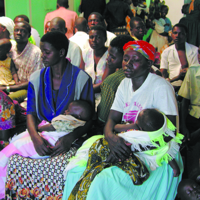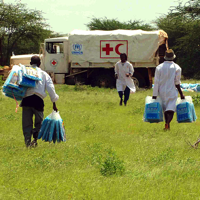Recent events in Libya have refocused attention on Libya’s remaining chemical agents, with particular concern over the possibility that Moammar Gadhafi will use them against the Libyan insurgents or against other targets, such as Western civilians. But there are also fears that the Libyan government could somehow lose control of some of the agents, whether due to ongoing domestic chaos or an eventual collapse of the regime, allowing terrorists to acquire them. Leaders of the coalition currently enforcing the U.N.-mandated no-fly zone over Libya need to adopt a strong declaratory policy against any misuse of these agents, even while they […]
WMD Archive
Free Newsletter

For decades now, strategic experts have predicted that our world was on the verge of a break-out in nuclear proliferation that would see us grappling with two- or three-dozen nuclear powers. Indeed, the inexorable spread of nuclear weapons is the closest thing to an unassailable canon in the field of international relations, as one cannot possibly employ the term “nuclear proliferation” without preceding it with the modifier “increasing.” This unshakeable belief, wholly unsupported by any actual evidence, drives many Cold War-era “wise men” to argue that mutually assured destruction (MAD) and strategic deterrence in general are obsolete and therefore immoral […]

Editor’s note: This is the second of a five-part series examining security and development aid and capacity-building in East Africa. Part I provided an overview of the challenges facing East Africa. Part II examines the overlap between public health and security challenges. Part III will examine the overlap between small arms trafficking and WMD nonproliferation. Part IV will examine the overlap between counterterrorism and efforts to contain criminal violence. Part V will provide success stories for the security-development model and discuss next steps. As the burden of disease declines in much of the world, urbanization and changing lifestyles in Africa, […]

Editor’s note: This is the first of a five-part series examining security and development aid and capacity-building in East Africa. Part I provides an overview of the challenges facing East Africa. Part II will examine the overlap between public health and security challenges. Part III will examine the overlap between small arms trafficking and WMD nonproliferation. Part IV will examine the overlap between counterterrorism and efforts to contain criminal violence. Part V will provide success stories for the security-development model and discuss next steps. According to the World Bank, more than half of the people in sub-Saharan Africa live in […]

One of the mysteries of Iran’s nuclear program is the fact that, despite periodic warnings about how close Tehran is to acquiring a nuclear weapons capability, the Iranian nuclear program is proceeding at a slower speed than that of earlier nuclear weapons states. Whereas Pakistan and North Korea needed only some 10 years to develop atomic bombs, Iran has had a nuclear program for almost three decades without producing a weapon. Various explanations could explain this deliberate pace. Iranian leaders might still be debating their nuclear weapons options and not yet committed to pursuing a nuclear weapon or capability. Iran’s […]
